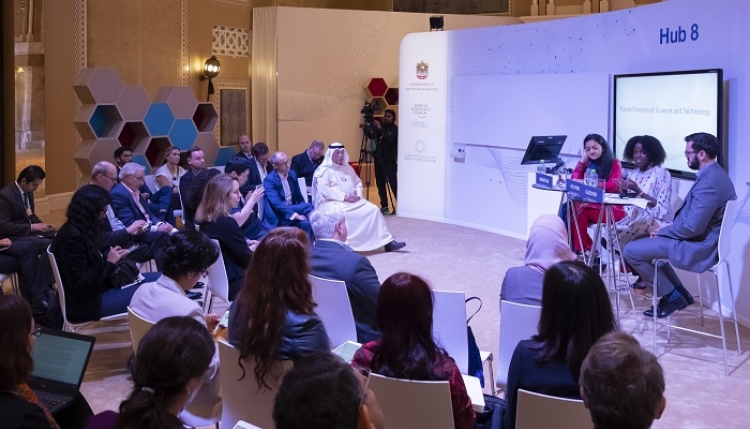It is important to work proactively to keep up with the complex developments reshaping our world and embrace the potential brought forth by the Fourth Industrial Revolution, noted experts at a session titled “Future Frontiers of Science and Technology” on the second day of the Third Annual Meeting of the Global Future Councils 2018, taking place on November 11-12 at Dubai’s Madinat Jumeirah.
Participants at the session called on governments and international organisations to promote sustainability across all sectors by fostering more positive and effective relationships with natural resources.
Dr Suchitra Sebastian, Associate Professor, Department of Physics, Cavendish Laboratory, University of Cambridge, said: “Advanced technologies have become the main engines driving better results. We must embrace them and utilise them now more than ever in order to benefit from modern technologies and the potential they offer for addressing current challenges.”
“With the proliferation of these technologies – particularly artificial intelligence (AI) and other Fourth-Industrial-Revolution technologies – and the abundance of information, the time is now ripe for addressing challenges standing in the way of a more sustainable economy and better economic benefits for the community,” she added. “The most pressing issue for the time being is finding practical substitutes for the energy sector and benefitting from alternative technologies, most notably, wind and solar power.”
Dr Sebastian went on to note that “renewable and alternative energy is one of the most important subjects to cooperate on at a global level and find collaborative solutions to address climate change, reduce carbon emissions, and minimise the increase in Earth’s temperature. We could, for example, make use of the vast space existing in some parts of the world to produce energy that we can later transfer to other areas using efficient and advanced technologies”, she explained.
Meanwhile, Mandë Holford, Associate Professor of Chemical Biology, Hunter College, City University of New York (CUNY), asserted that we must take a more practical look at innovation to elevate it from theory to practice, creating solutions and future services that can benefit all members of the community.
There are challenges to be addressed in that regard, Holford noted, most notable of which is water and providing it for millions of people, in addition to diseases threatening people around the world, and producing food to ensure food security.
Modern technologies offer a significant international opportunity we can benefit from to drive great results, she said; we must find solutions for these challenges and find common ground to work together. “These are no longer local issues that concern individual countries; they are international issues that call for international solutions,” Holford concluded.

